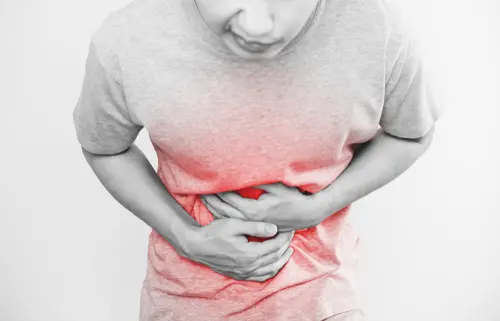- Home
- Medical news & Guidelines
- Anesthesiology
- Cardiology and CTVS
- Critical Care
- Dentistry
- Dermatology
- Diabetes and Endocrinology
- ENT
- Gastroenterology
- Medicine
- Nephrology
- Neurology
- Obstretics-Gynaecology
- Oncology
- Ophthalmology
- Orthopaedics
- Pediatrics-Neonatology
- Psychiatry
- Pulmonology
- Radiology
- Surgery
- Urology
- Laboratory Medicine
- Diet
- Nursing
- Paramedical
- Physiotherapy
- Health news
- Fact Check
- Bone Health Fact Check
- Brain Health Fact Check
- Cancer Related Fact Check
- Child Care Fact Check
- Dental and oral health fact check
- Diabetes and metabolic health fact check
- Diet and Nutrition Fact Check
- Eye and ENT Care Fact Check
- Fitness fact check
- Gut health fact check
- Heart health fact check
- Kidney health fact check
- Medical education fact check
- Men's health fact check
- Respiratory fact check
- Skin and hair care fact check
- Vaccine and Immunization fact check
- Women's health fact check
- AYUSH
- State News
- Andaman and Nicobar Islands
- Andhra Pradesh
- Arunachal Pradesh
- Assam
- Bihar
- Chandigarh
- Chattisgarh
- Dadra and Nagar Haveli
- Daman and Diu
- Delhi
- Goa
- Gujarat
- Haryana
- Himachal Pradesh
- Jammu & Kashmir
- Jharkhand
- Karnataka
- Kerala
- Ladakh
- Lakshadweep
- Madhya Pradesh
- Maharashtra
- Manipur
- Meghalaya
- Mizoram
- Nagaland
- Odisha
- Puducherry
- Punjab
- Rajasthan
- Sikkim
- Tamil Nadu
- Telangana
- Tripura
- Uttar Pradesh
- Uttrakhand
- West Bengal
- Medical Education
- Industry
Gas-related intestinal symptoms frequent and tied to psychological distress and poor QOL: Study

Gas-related symptoms are associated with poorer quality of life, and higher stress, anxiety, and depression, with breaking wind being the most frequently reported gas issue, affecting eight out of 10 adults in the general population (81.3 %) in a 24-hour period, according to a new survey1 being presented today at UEG Week Virtual 2021.
Other gas-related symptoms included stomach rumbling, which affected 60.5% of respondents, closely followed by belching (58%), and bad breath (48.1%). Trapped wind (47.2%), abdominal distension/swollen tummy (39.6%) and bloating/abdominal pressure (38.5%) also had a noticeable impact, while only 11.1% of respondents reported having no gas symptoms. On average survey participants had been affected by three different gas symptoms within the previous 24-hour period.
The findings from the study, which surveyed nearly 6,000 people across the United States, United Kingdom, and Mexico, were based on a representative sample of people aged 18 to 99 years asked to fill out validated Intestinal Gas Questionnaires (IGQs) via the internet, to measure the presence and severity of 7 gas-related symptoms in the last 24 hours. Researchers also collected information on body mass index, exercise, emotional wellbeing, and quality of life in the past 7 days.
The survey, conducted by scientists from the Rome Foundation Research Institute in the US in collaboration with Danone Nutricia Research in France, revealed that higher IGQ scores correlated with lower mental health and quality of life scores on the PROMIS Global-10 questionnaire, higher stress, anxiety, and depression, and more non-gastrointestinal (GI) symptoms. However, IGC scores did not correlate with weight/BMI and only had a modest negative association with the amount of exercise taken.
Younger people aged 18 to 34 and 35 to 49 had the highest overall burden of gas-related symptoms, with IGQ total scores of 24 and 22.6 respectively, compared to 12.7 in people aged 50 to 64 and 8.6 in the over 65s. People in Mexico had higher scores for all seven gas symptoms in IGQ questionnaires, and a higher average IGQ total score, of 26 compared to 14.5 in the US and 13.7 in the UK.
Lead author, Professor Olafur Palsson from the University of North Carolina Department of Medicine, said: "I think the most remarkable and surprising finding in our study is that almost all adults in the general population experience some daily gas-related symptoms. This is important given the data also clearly reveals that these symptoms affect people's general wellbeing. Having a high amount of these common intestinal symptoms is associated with higher levels of depression, anxiety and stress, as well as impaired general quality of life."
He added, "The reasons for the marked differences in the amount of gas-related symptoms between Mexico and the other countries we surveyed are unknown, and need to be investigated further. Cultural, linguistic, diet or public health factors might affect population levels of gas-related symptoms."
The survey methods used included the IGQ, the Patient Health Questionnaire non-GI physical symptoms (PHQ-12) and anxiety and depression (PHQ-4) scales, the PROMIS Global-10 QoL questionnaire and questions on exercises amount, height, weight, and life stress.
Table 1. Prevalence of IGQ gas-related symptoms in past 24 hours: % of respondents [95% CI].
Hina Zahid Joined Medical Dialogue in 2017 with a passion to work as a Reporter. She coordinates with various national and international journals and association and covers all the stories related to Medical guidelines, Medical Journals, rare medical surgeries as well as all the updates in the medical field. Email: editorial@medicaldialogues.in. Contact no. 011-43720751
Dr Kamal Kant Kohli-MBBS, DTCD- a chest specialist with more than 30 years of practice and a flair for writing clinical articles, Dr Kamal Kant Kohli joined Medical Dialogues as a Chief Editor of Medical News. Besides writing articles, as an editor, he proofreads and verifies all the medical content published on Medical Dialogues including those coming from journals, studies,medical conferences,guidelines etc. Email: drkohli@medicaldialogues.in. Contact no. 011-43720751


